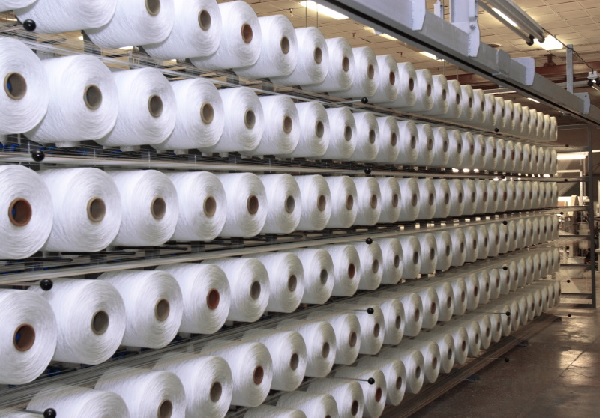The nylon production business is an exceptionally lucrative venture that holds promising prospects for entrepreneurs in Nigeria. The demand for nylon products remains consistently high due to their versatile applications, including packaging, shopping, and bagging. If you considering starting this business, read this article to the end as we provide a step-by-step guide on how to start a nylon production business in Nigeria.

How to start nylon production business in Nigeria:
-
Gain Experience in Nylon Production
It is highly advisable to acquire a comprehensive understanding of the nylon production business. Consider working in a nylon production facility for a period to gain valuable hands-on experience.
Alternatively, attending seminars and trade workshops can also contribute to your knowledge and skill development. Seeking advice from experienced individuals, particularly those outside your immediate area to avoid potential competition, can provide valuable insights and help you make informed decisions.
Getting relevant experience before starting a nylon production business will enhance your credibility as a business owner, equip you with problem-solving skills, as well as help you gain insights into customer preferences, needs, and expectations.
In addition, engaging in this learning process will help you avoid common mistakes and pitfalls, and build valuable networks and connections with industry experts, suppliers, customers, and potential partners.
-
Conduct Market Research
Conduct a comprehensive market survey to identify your target market before entering the nylon production business. This survey should be conducted within the area where you plan to establish your production facility.
Potential target markets in Nigeria typically include pharmacies, water production companies, eateries, restaurants, traders, hospitals, bakeries, supermarkets, laundries, fashion stores, and schools.
-
Secure Adequate Capital
The capital required for your nylon production business hinges on its scale and scope. You must determine how to cover your startup expenses. If personal funds are insufficient, exploring loans as a source of capital may be necessary.
Key expenses to cover include land acquisition or lease, equipment, labor, electricity, generators, and other operational costs. Machine procurement, whether imported or locally sourced, may cost approximately N16 million or N8 million, respectively. Budgeting between N10 million and N30 million is recommended, although the exact figure depends on the location and operational scale.
-
Secure Suitable Land
Procure a suitable piece of land to accommodate your nylon production facility. Ideally, the location should be near your sources of raw materials and target markets to minimize transportation costs. The site must be spacious enough to house all the necessary machines for nylon production.
-
Get Your Business Registered
Registration of your nylon production business is the next step of the process. In Nigeria, business registration is crucial as it makes your business legitimate and credible, make it easier to access bank loans and grant, and protect your personal assets from any potential legal issues or debts that may arise from the business.
The Corporate Affairs Commission (CAC) is the government agency in Nigeria to register your business.
Below is the registration process for business with CAC:
- Check for the availability of the business name by visiting https://services.cac.gov.ng/
- Complete the pre-registration form – CAC-BNo1 and upload the relevant registration document online using Company Registration Portal
- Pay filing fees.
-
Get Necessary Machinery
Acquiring the necessary machinery is the next stage of the process. Depending on your budget you may choose to buy the machines from abroad or source them locally. The equipment you need to get for your nylon production business includes the extruder blowing machine, nylon cutting machine, punching machine, and printing machine.
Note that the choice between foreign and local machinery depends on your budget, production capacity, and quality standards.
In addition, you may consider investing in getting a delivery truck for efficient transportation to the market.
-
Employ a Competent Workforce
Building a capable workforce is essential for the entire nylon production process. Engage skilled engineers for machine installation, as well as machine operators, truck drivers, product managers, sales executives, and other relevant positions. Prioritizing experienced professionals can greatly benefit your nylon production business.
-
Get Raw Materials
The foundation of nylon manufacturing rests upon essential raw materials derived from petrochemicals, which originate from either crude oil or natural gas. These petrochemicals undergo processing to create key intermediates like adipic acid, which is indispensable in the production of nylon 6,6.
Hexamethylene Diamine (HMDA) is another critical component necessary for nylon 6, and cyclohexane plays a pivotal role in the polymerization process.
These vital raw materials can be sourced from prominent suppliers, distributors, and even the manufacturers producing them.
-
Begin Nylon Production
With the raw materials, necessary equipment and a competent workforce all sorted out, the next thing to do is to begin nylon production. If you had acquired experience at the beginning of this journey, the nylon production stage would not be so difficult. Moreover, a competent workforce as part of your team makes this stage a lot easier.
The nylon production process usually commences with the introduction of raw materials into the heating and melting unit of the extruder machine. Subsequently, these materials transform into a liquid state and are then pressurized and blown through a medium. After this, the material is cooled, resulting in the creation of polythene sheets, which are subsequently fashioned into bales, ready for cutting and sealing.
-
Get Customers for Your Nylon Production Business
To grow your nylon production business, focus on targeting industries and businesses that need to use nylons for their operations. Your potential customers include pharmacies, water production companies, eateries, restaurants, traders, hospitals, bakeries, supermarkets, laundries, fashion stores, and schools.
Also, consider creating a professional website to reach a wider audience. Utilize SEO best practices, social media and sharing quality content around the nylon industry to grow your customer base.
Furthermore, invest in advertising and network within relevant industry associations. Patience and persistence are essential as you build strong customer relationships and deliver consistent value over time to foster business growth.